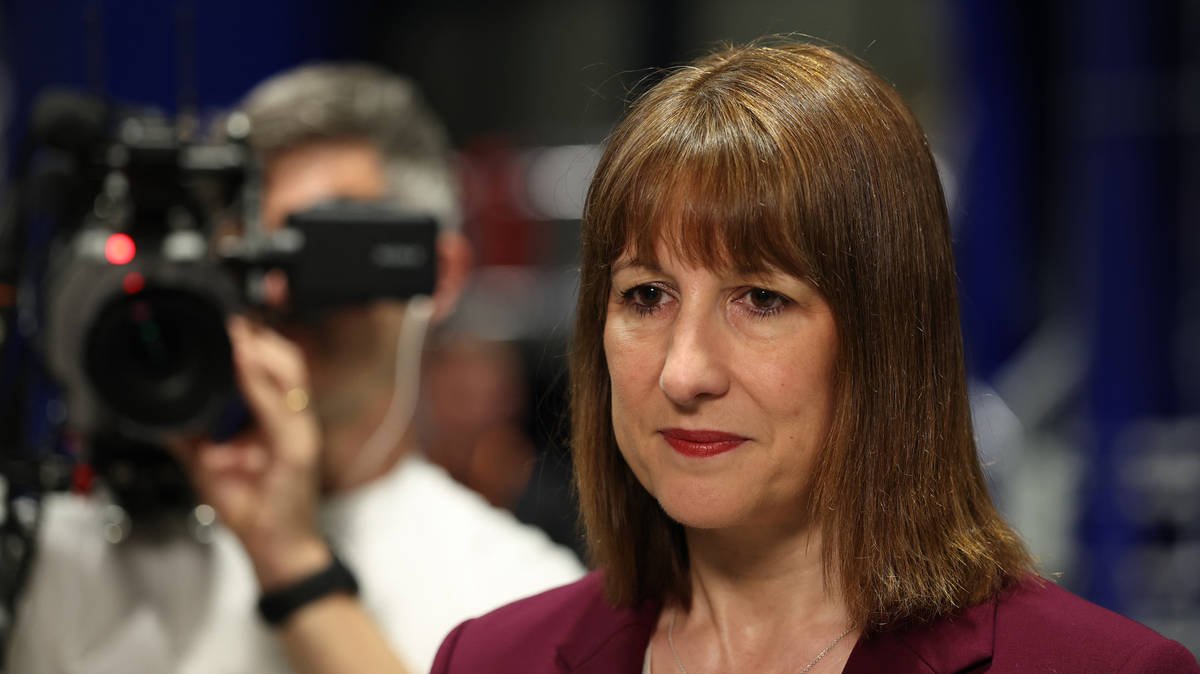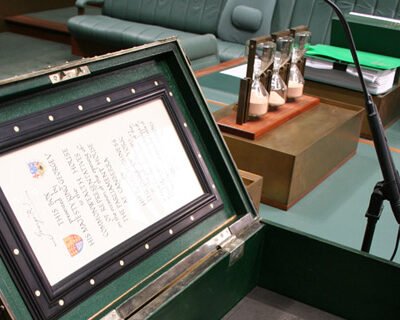15 May 2025, 11:48

Picture:
Getty
Chancellor Rachel Reeves has told LBC the UK’s higher-than-expected growth figures are ‘really welcome’, and reflect the decisions made by the government.
The UK economy grew at the fastest rate in a year over the first quarter of 2025, in a boost to Chancellor Rachel Reeves, new official figures show.
Gross domestic product (GDP) increased by 0.7% between January and March, the Office for National Statistics (ONS) said.
Speaking to reporters in Derby, the Chancellor said the figures are ‘really welcome’.
She told LBC’s Harry Briggs: “[The figures] reflect the decisions that we’ve made as a government to bring stability back to the economy, which has enabled the bank of England to cut interest rates four times.
“The increase in the national living wage, putting more money in the pockets of millions of low paid British workers.
“And the two trade deals that we’ve secured both with India and the US … That is good for business here in Derby and right across the country.”
She added that Britain is “set to be the fastest growing economy in all of the G7 in the first three months of this year.”
The new growth figure surpassed economists’ gloomy expectations of 0.6% growth for the quarter.
It was also the highest GDP rate since the first quarter of 2024, when the economy jumped by 0.9%.
The chancellor was also asked about the cost of living crisis and the cuts to the winter fuel payment, as the government is facing a potential rebellion over the plans.
“I recognise that the cost of living crisis does continue for many people,” she said. “But last month we were able to increase the basic state pension, and the new state pension.”
She added: “But I do understand that we need to bring energy bills down. That’s why we are investing in our energy security, building homegrown energy here in Britain to get those bills down for working people and also for pensioners.”

Picture:
PA Wire
Growth was driven by the country’s dominant services sector, which was strengthening in the opening months of the year despite some businesses warning that they were grappling with rising costs.
Ms Reeves said the figures “show the strength and potential of the UK economy”.
“Up against a backdrop of global uncertainty we are making the right choices now in the national interest,” she said.
Prime Minister Sir Keir Starmer said the figures showed he was meeting his goal of having the highest growth in the G7 group of advanced economies.
“But I know the Tory cost-of-living crisis isn’t over – we will go further and faster to deliver for working people,” Sir Keir said.
Ms Reeves acknowledged that there was “more to do”, with the latest ONS figures covering the period before tax rises and US President Donald Trump’s “liberation day” tariff announcements.
Company national insurance contributions increased from April, which some economists have said will force firms to cut jobs.
Read more: Reeves hails pension funds’ vow to invest billions in UK infrastructure schemes
Read more: Take on Apple and Google to boost UK economy, think tank says
And the US has imposed a 10% blanket tariff on most UK goods entering the world’s biggest economy, which is expected to directly impact exporters and has led to heightened uncertainty affecting businesses and households.
The latest figures show that economic growth slowed to 0.2% in March, from 0.5% in February, as activity among UK factories began to slump.
Shadow chancellor Sir Mel Stride pointed out that both the Office for Budget Responsibility and the International Monetary Fund had downgraded short-term growth forecasts on the back of tariff uncertainty.
“Labour inherited the fastest-growing economy in the G7, but their decisions have put that progress at risk,” he said, adding that national insurance hikes – which he branded as “jobs tax” – were making people worse off.
Liz McKeown, ONS director of economic statistics, said: “The economy grew strongly in the first quarter of the year, largely driven by services, though production also grew significantly, after a period of decline.
“Growth in services was broad based, with wholesale, retail and computer programming all having a strong quarter as did car leasing and advertising.
“These were only slightly offset by falls in education, telecoms and legal services.”
The services sector jumped by 0.7% over the quarter, compared with the last three months of 2024, with administrative and support service activities surging by 3.3%.
Retail trade increased by 1.4% over the quarter, while sports and recreation activities picked up by 5.8% in March as warmer weather swept across the UK.
Consumer-facing services rose by 0.9% in the first quarter, indicating relative strength among households ahead of a swathe of bills rising from April, including energy and water.
Elliott Jordan-Doak, senior UK economist for Pantheon Macroeconomics, said the first-quarter data shows “the economy holding up well heading into the trade war”, which is expected to “hurt growth in 2025 and 2026”.
“The UK’s new trade deal with the US rules out the worst-case scenario for tariffs, at least for now,” he added.
“But we think the radical uncertainty unleashed by the trade war will persist, weighing on investment and consumer confidence.”





